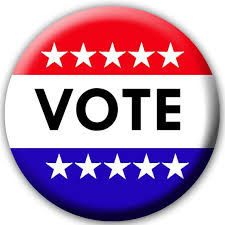Child Development
Child Development in the Trump Age
What can political socialization research tell us?
Posted February 25, 2020

As a developmental psychologist, I’ve been fascinated by the question of how political attitudes, values, and behaviors are formed. Do experiences during childhood help mold later political preferences? Does growing up in a particular political era—the Eisenhower '50s, with Joseph McCarthy’s hunt for supposed hidden Soviet agents, or the tumultuous '60s of the Vietnam War and the Age of Aquarius—shape political sensibilities into future eras?
On a more micro level, do parental political allegiances foretell children’s later political choices? Are there “sensitive periods,” perhaps during late adolescence, in which political orientations become especially salient?
These questions seem particularly pertinent now in the highly polarized political environment of the Trump presidency. Regardless of political persuasion, there is universal agreement that the Trump presidency is a disruptive one, intent on shattering norms of conduct, speech, and policy. For supporters, this is a welcome shaking up of unresponsive, “politically correct” institutions. For opponents, it is an alarming dismantling of basic democratic structures, threatening the foundations of American democracy.
The current presidency follows just over three years from a very different one. The Obama presidency, among many differences, presented an African American as a presidential role model, for the first time in American history. This, too, was a period welcomed by supporters as evidence of the best in American society and deeply opposed by others as an illegitimate affront.
A 5-year-old in 2008, the year of President Obama’s election to his first term of office, would be 17 years old in 2020. This teenager might soon anticipate leaving home for college or work. Importantly, in just one year more, this individual would be eligible to vote, and (we all hope) would exercise that franchise. Can political socialization research tell us anything about the political mind of that 17-year-old, a "veteran" of both Obama terms and nearly one term of the Trump presidency?
Family comes first
One strand of research on political socialization holds that parents’ political attitudes are passed on to their children, ensuring generational continuity, regardless of changes in the wider political and cultural climate. “My parents were staunch Democrats (or Republicans, or liberals or conservatives), and so am I.” Certainly, children with little access to independent information or persuasion generally express, if asked, the political preferences of their parents. When grade-school children participate in mock elections at school, the results usually mirror the preferences of their parents.
However, this initial allegiance to parental preferences may be challenged as children become adolescents and young adults. Contemporary cultural and political shifts may become more salient, as children access more information about politics. In the social media age, teens are likely to encounter political voices far outside their parents’ comfort zone.
Adolescent efforts at individuation and autonomy mean that parents’ political assumptions may become open to questioning. When teens leave home to attend college or work in a different community, new ideas and perspectives are likely to challenge their childhood assumptions.
A famous example is Hillary Clinton, former First Lady, Secretary of State, U.S. Senator, and candidate for President. In her late teens, as the child of conservative Illinois Republicans, she worked for the presidential candidacy of Barry Goldwater, a Republican conservative. By the time she graduated from Wellesley College, near Boston, she was a liberal Democrat.
A British cohort analysis of political views (Grasso, et al., 2019) identified a “formative period” between ages 20 and 35 years, when political values gel and, from then on, remain relatively stable. This is consistent with a developmental perspective that late adolescence and early adulthood is a period of identity exploration and in Erikson’s words, “identity achievement.” Not surprisingly, identity issues encompass political identity.
Peers are important too
Identity exploration and achievement involve relationships with peers, especially discussions with peers. Thus, one might expect that discussions with peers may be a mechanism by which political values form and solidify. In this way, an individual becomes part of a “political generation.”
A recent longitudinal study (York, 2019) found that political discussions with peers as well as a teenager’s consumption of news via various media predicted later discussions with parents, but not the reverse. In other words, political engagement with other teens and young adults led later to more political engagement with parents at home. In fact, when teens reach voting age, they may influence their own parents’ voting behavior.
A study in Denmark (Dahlgaard, 2018) found that parents were more likely to vote in elections when their teenager became eligible to vote, but this only happened if the teen was still living at home with the parents. Some scholars call this “trickle-up political socialization.”
Social structure matters
Political participation is highly unequal. Social class and education predict more participation; minority status predicts less. Structural barriers to participation abound, the most egregious being voter suppression efforts.
A recent study confirmed that political inequality starts at home and starts early. More affluent and educated parents are more politically engaged and informed. They pass on that interest to their children.
This is reflected in children’s online involvement in political content, matching their parents’ social status. When income and education inequality widen, and social mobility slows, these structural barriers harden. Our hypothetical 5-year-old grew up in a time of growing inequality and diminishing social mobility, making unequal political participation an intergenerational problem.
High inequality and low social mobility also may impact identity in ways that affect political participation. There is much contemporary discussion of “identity politics,” and “information silos.” To the extent that race, ethnicity, religion, gender, geographical region, and class—and some combinations of these—form the core of an individual’s sense of identity, political views are likely to be aligned with that group identity. Issues of political concern become those which animate the group.
Both high inequality and low mobility harden the walls of group identity. First, individuals are less likely to encounter and interact with those in other identity groups. Second, as inequality widens, areas of common interest and concern become scarcer. Third, social media now provide identity groups with their own preferred sources of information, further reinforcing differences. These trends will lessen the exposure of teens and young adults to challenging viewpoints from peers, media, or adults.
The historical moment
Broad and deep historical shifts leave a mark on the generations who come of age during them. The children of the Great Depression were ever after affected by growing up in that era of extreme economic distress. The “Greatest Generation” who fought in World War II returned to yearn for the “normalcy” of an imaginary earlier time.
The Vietnam war ushered in a powerful backlash against government duplicity in a pointless and lost war. The attacks of 9/11 left a generation scarred by terrorist threats. Exactly how these upheavals trickle down to children and teenagers and later affect their adult political choices remains unclear.
Civic values
The proliferation of social media, attacks on the press, and the relativization of facts all have led to an erosion in confidence in sources of political information. Even more, it has led many to be indifferent to separate fact from conspiracy in the interest of advancing their group’s political issues. Others, less politically engaged, come to feel that everyone is somehow biased or duplicitous, and therefore, all information should be tuned out.
How this media climate is affecting children and teens is unclear. It may reinforce selective attention to sources of information that confirm biases. This “assault on truth” may leak into other areas, such as the educational system and the teaching of the scientific method. As civics, social studies, and American government disappear from middle school and high school curricula as required subjects, a common investment in democratic values and norms disappears as well.
Civic values also depend on a shared understanding of civil discourse and norms of behavior. When children are exposed to name-calling, insults, and bullying by prominent political figures, including the President of the United States, do children internalize a message that such behavior is now acceptable or even admirable?
Historically, U.S. Presidents have played the public role (whatever their private behavior) of personal role models for the nation’s children. At the present time, many parents are faced with the dilemma of disapproving and disciplining their own child for the very behaviors that are “presidential.” Will children growing up in this era of a challenge to civic norms become future voters who disavow those norms?
Our hypothetical 5-year-old, now 17, stands on the cusp of political action, at least in terms of voting eligibility. Political socialization scholarship has pointed us to family, peers, social structure, historical moment, and civic values, all shaping adult political life. As in many eras before, this youngster has been buffeted by the winds of social and political change. The stakes seem higher than ever before.
References
Dahlgaard, J. O. (2018). Trickle-up political socialization: The causal effect on turnout of parenting a newly enfranchised voter. American Political Science Review 112, 698-705.
Grasso, M. T., et. al. (2019). Thatcher's children, Blair's babies: Political socialization and trickle-down value change: An age, period and cohort analysis. British Journal of Political Science 49, 17-36.
Thorson, K., Xu, Y., & Edgerly, S. (2018). Political inequality starts at home: Parents, children and the socialization of civic infrastructure online. Political Communication 35, 178-195.
York, C. (2019). Is it topdown, trickle-up or reciprocal? Testing longitudinal relations between youth news use and parent and peer political discussion. Communication Studies 70, 377-393.




